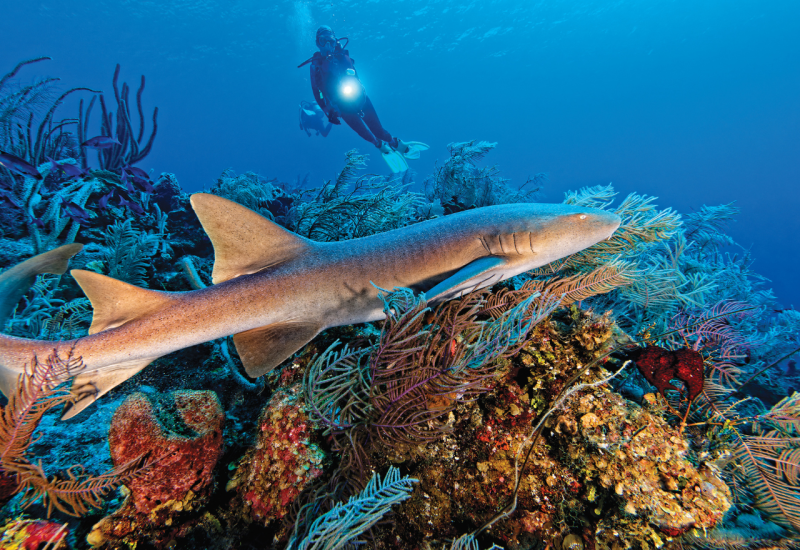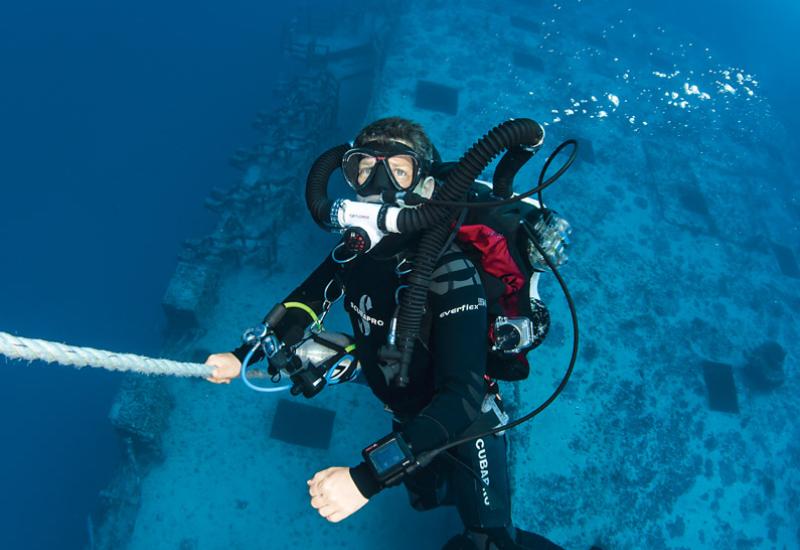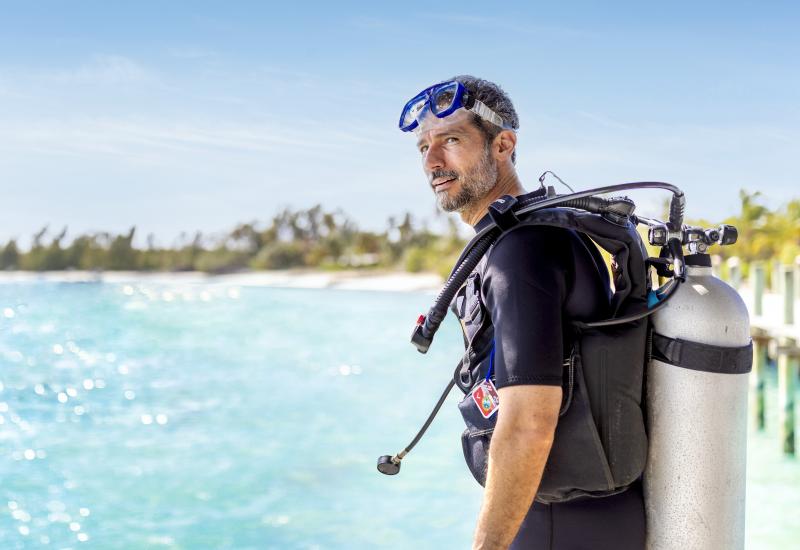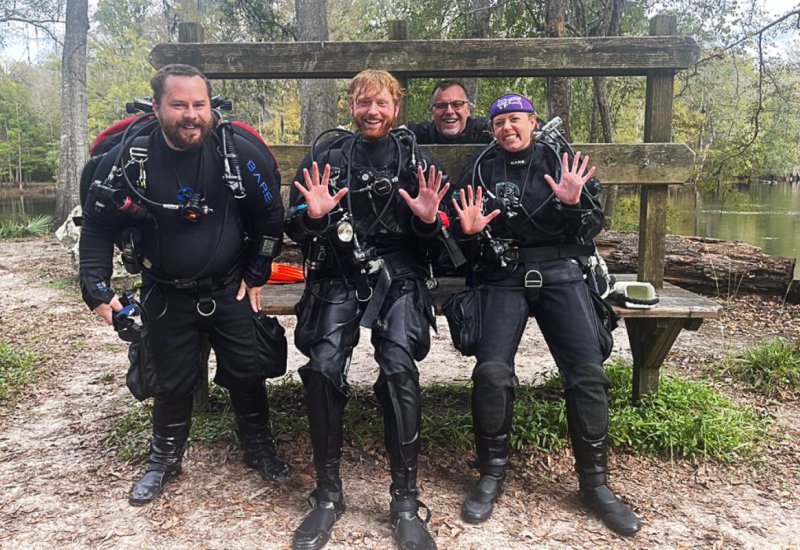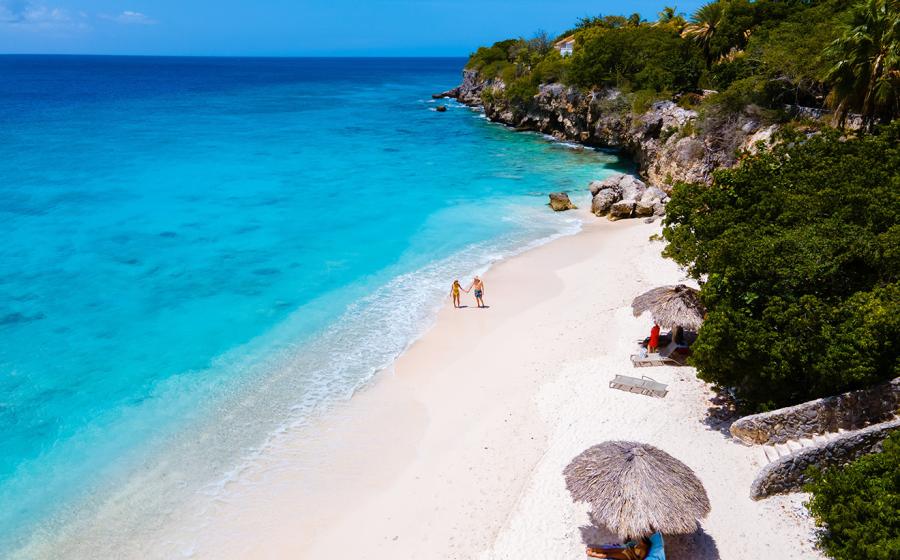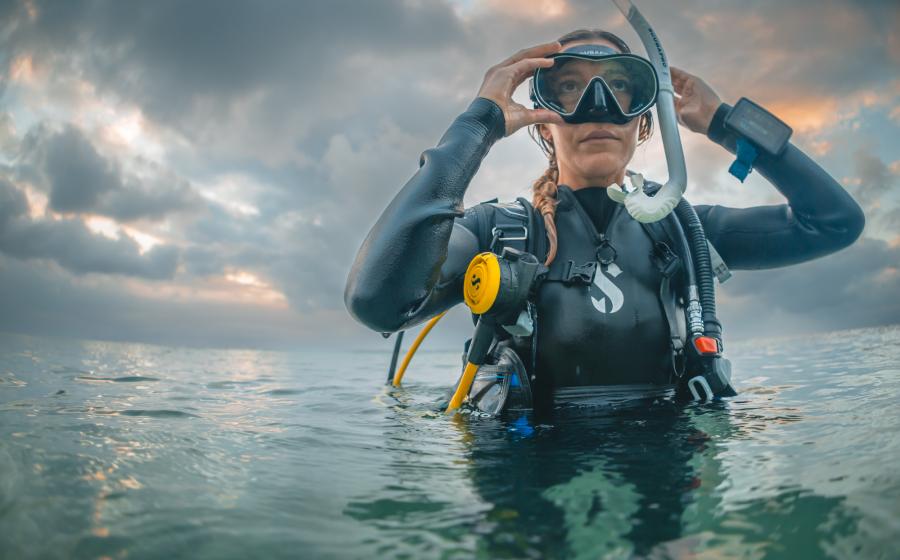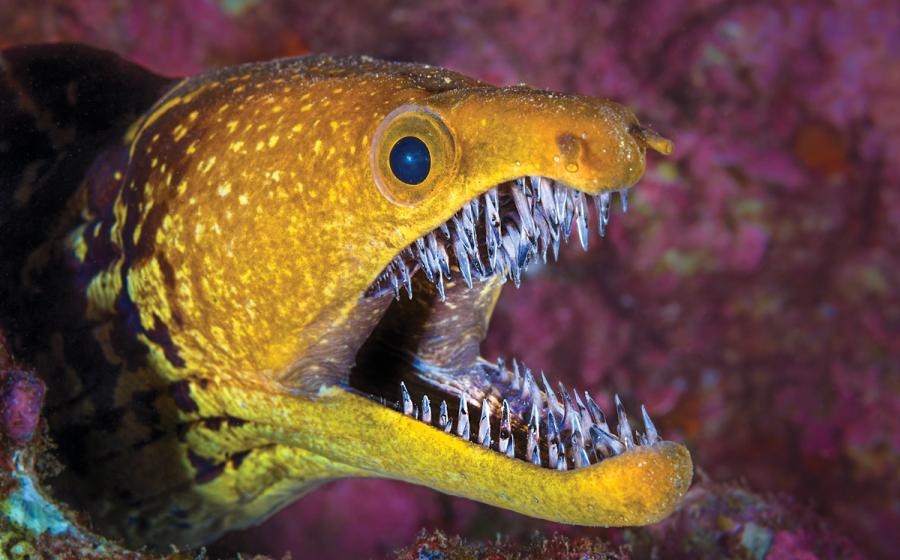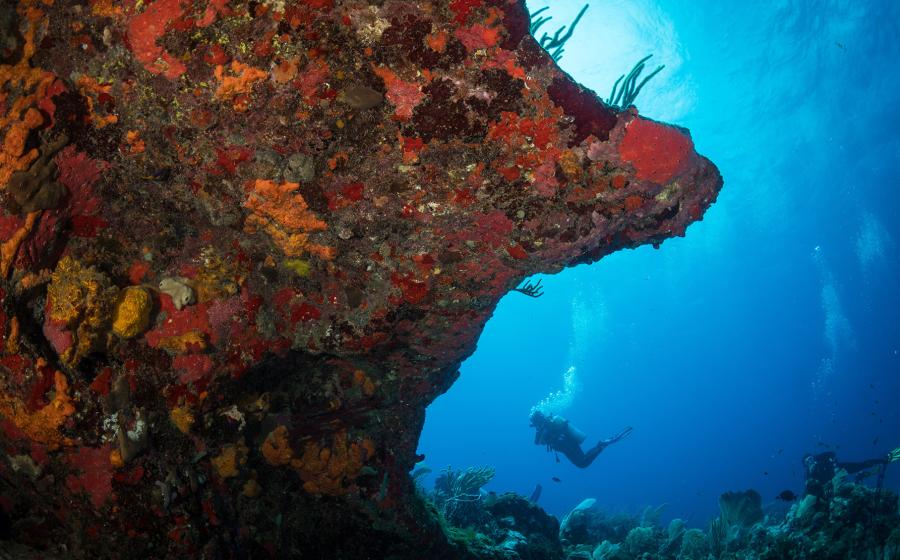Solo Certification: It's Time
||
|---|
|

|
| Evidence is mounting that solo diving can and should be an alternative for qualified divers.|
Let's welcome the new millennium by finally ending the absurd controversy over solo diving and grant certification status to experienced divers through a formalized process.
-
advanced diver certification
-
minimum of 100 logged dives
-
approved diving physical examination
-
dive planning, including air and decompression management using one scuba package
-
use of an independent back-up breathing source, e. g., pony bottle, twin cylinders with isolation manifold, etc.
-
use of signaling and location devices
-
use of flotation equipment adequate for support in all conditions
-
navigation skills to ensure transit to and from entry site or boat
-
fitness and conditioning to a level consistent with planned exertion levels or self-rescue
-
site selection appropriate for single-diver entry and exit
-
self-rescue and stress management techniques
-
use of contingency plans
-
use of safety reels, deco bags, current hooks, etc.
-
configuration of equipment to optimize its solo access and deployment.
Codifying solo diving with practical standards makes sense for two reasons: First, divers who are currently diving independently without formal training will be encouraged to receive the instruction they need. Second, the buddy system is deeply flawed. It fosters dependent behavior in many divers and is proven not to enhance safety. In fact, it may do just the opposite for many divers forced into the role of buddy.
Buddy Diving
A Brief History
Diving has changed significantly since the first YMCA certification courses were offered in the 1950s. Back then, dive training was typically conducted by water-safety professionals who based scuba curricula on their prior experience. The buddy system was essentially borrowed from swimming and lifeguard training.
In entry-level scuba, the buddy system can make a lot of sense. Two divers can help each other gear up, conduct buddy checks, perform cooperative tasks or simply provide moral support. All this is great so long as a dependent relationship doesn't develop for the weaker member of the team.
A Brief Farewell
However, with experience, divers tend to become more focused on personal dive goals and, unless buddy teams are well matched with common interests, the system becomes a burden. Eventually, most who stay in the sport will reach a level where genuine independence is desired except in special circumstances. If they have been trained properly to assess risk and to practice self-reliant skills, there is simply no valid reason to compel their allegiance to the buddy system if it no longer suits their needs.
A Dirty Secret
In fact, divers who zealously practice buddy diving by the book are usually relatively new divers who are the least equipped to render meaningful assistance without endangering themselves. Perhaps more importantly, reliance on the buddy system may actually foster dangerous complacency and inattention to detail in these divers. Even casual observation on the deck of any dive boat would suggest that very few divers pay the kind of attention to their gear, site conditions, dive plan, and navigational requirements the way they should, especially if they were suddenly forced to be self-reliant.
The Legal Lunacy
Let's consider another twist that occurs daily: being assigned a buddy you don't know or don't want. It's a terrible intrusion on an individual's right to make an informed decision, and potentially on his right to dive, to force him to assume the burden of an irresponsible or dangerous buddy. Remember, recent court decisions have reinforced the notion that you have an implied legal responsibility to a diving buddy. Do you want to be sued because some bozo you met two minutes before the dive decides to take a one-way trip over the wall or has a coronary swimming back to the boat?
The "Helper" Myth
Besides being forced to by operators, perhaps the only reason many divers remained tethered to the buddy system is the "it's safer!" claim: Two divers can help each other in the event of injury, panic or equipment failure. Unfortunately, dive accident statistics and actual reports tell a much different story. In reality, buddy partnerships fail more often than they succeed. The reasons: Buddy diving encourages dominant and passive roles, one diver's ability to help the other is negated by separation or inattention, and few buddies have the actual experience or skills to assist another diver in the sudden onset of equipment failure, panic or an out-of-air situation.
Solo Certification
To the Rescue
If you conclude, as I do, that the increased training and skills required for independent diving will make you safer than the buddy system poorly practiced, then what would such a certification consist of? My modest proposal: A training program that builds independent skills and establishes your self-reliance as a diver:
Prerequisites
Required Curriculum
With these skill areas practiced to proficiency, qualified scuba divers can be certified as solo divers and pursue independent activities. Such a certification allows an effective assumption of risk by the solo diver who can now stipulate on a waiver and release of liability that he accepts the legal responsibility for his solo diving and has been formally credentialed by a training agency. This is exactly the legal "out" that most operators want in order to allow solo diving from resorts or live-aboards and to provide a legal posture than can be defended.
Solo diving will not be for everyone, but for many it will be liberating, allowing a more fulfilling experience of our sport. More importantly, we can start treating divers like adults who can make their own decisions with no more pious rules that we all know are ignored as often as observed, and for good reason.
New "Solo Diver" Certification
||
|---|
|

|
| Brian Carney|
An interview view Brian Carney, Training Manager, Scuba Diving InternationalBy David Taylor
Rodale's Scuba Diving: Why is SDI offering a Solo Diver C-card? Aren't you a little ahead of the curve on this one?
Brian Carney: Maybe. But it's not an unfamiliar position. We were the first to certify 10-year-olds and require open-water students to have computers. But our instructors think we're a little behind the curve.
RSD: How so?
Carney: They've been asking for it for some time. Since most of our instructors are also TDI (Technical Diving International) instructors, they deal with experienced divers who want to walk on a boat, show a Solo Diver ID, and not be bound to another diver they don't know and who may be a danger to them.
RSD: Speaking of danger, you're going to be accused of getting people killed, ruining the sport's popular image and returning us to the bad old days of macho daredevils. How will you respond?
Carney: By saying that there are pros and cons to buddy diving and to solo diving. The key is to be rigorously trained, confident and experienced, whether it's in the buddy system or as an independent diver. Properly trained and executed, both systems can be safe. Our main concern is that there are literally thousands of divers going solo right now who lack the requisite training to do so safely. They're accidents waiting to happen. If they're going to do it, we want to make sure they're prepared and qualified to do it safely. We think it's time some agency stepped up to the plate and made a commitment to it for everyone's sake.
RSD: This sounds familiar. I remember some concerns about nitrox--
Carney: --and deep diving and dive computers before that and BCs before that. It's been a constant theme: certification agencies resist change, fail to provide updated training, and divers pay the price. That's one of the reasons SDI/TDI was founded: to provide what other agencies refuse to.
RSD: You and I are talking in January 2001. When do you expect the new certification to be available?
Carney: In time for the spring season, late March, early April. Divers can simply go to any dive store affiliated with SDI/TDI or to our web site: www.tdisdi.com.
For the name of an SDI/TDI store near you, call toll-free 888-778-9073.
Mike Ball Dive Expeditions: Solo Diving In Action
||
|---|
|

|
Things are always a bit different Down Under. With Australia's premier dive live-aboard company, Mike Ball Dive Expeditions, going solo is "no problem, mate," with four big ifs:
1) If you have the experience and age.
You must be 21 with proof of a minimum of 100 dives, five in the last year. Those younger than 21 must have divemaster rating or higher.
2) If you have the right equipment.
Including a fully redundant air system with a minimum of six cubic feet of air; a "Dive Alert" horn or equivalent; safety sausage; dive light; dive knife; compass.
3) If you successfully demonstrate independent diver skills.
Surface snorkel 100 meters in full scuba gear; use safety sausage and air horn; navigate 100-meter course with 75 percent accuracy; hover at 15 feet for 3 minutes and clear flooded mask; ascend normally with redundant air supply.
4) If you follow safe dive procedures on each dive.
Including dive planning and adherence to the plan, adequate safety stops, ascent rates, hydration, rest, etc.
Why the Buddy System is Dangerous
by Paul Humann
I am confounded by the illogic of many of those who try to defend the buddy system, even the spokesperson for a training agency. Here is some of the nonsense I've heard and why it is just that:
The buddy system makes diving more fun and practical.
Of course, neither has anything to do with the buddy system. Fun is touted as sharing the dive and the after-dive experience with your buddy. Practicality means helping your buddy lug around equipment, get suited up and other niceties. These benefits can be enjoyed with any dive companion without that person being a "buddy" for whose safety you are legally responsible.
The buddy system makes diving safer.
Safety is the only issue that gives the buddy system credibility. Let's be perfectly clear here: I am not calling for the complete abolition of buddies. Anyone who feels uncomfortable under water without someone around and anyone who is willing to assume responsibility for a buddy can benefit from it. A beginning diver will naturally feel less anxious if teamed up with an experienced diver.
However, the advantages of an ever-present buddy dwindle rapidly as divers acquire confidence through experience and additional training. In fact, most of today's experienced reef divers rarely stay close enough to their partners to be considered good buddies. And let there be no misunderstanding: For the buddy system to work, one must be constantly aware of his buddy's situation. Anything less invites failure should an emergency occur.
Anyone who has dived understands the dilemma: We dive in order to be distracted by the wonders of the underwater world, yet we impose a system of diving directly at odds with that purpose. As a result, rather than increasing safety, the buddy system as currently practiced fosters a false sense of security and increases the likelihood of panic.
The fear of being sued by a buddy is exaggerated.
This response is incongruous: Certification agencies employ teams of lawyers to draft liability waivers that they ardently defend in court. It is also hypocritical: You and I are forced to sign these same documents before we dive with any operator. You bet the training agencies worry about legal liability. Why are they telling you not to?
Fellow Divers: It's Time to Stand Up for Your Rights.
Do you recognize this scenario? At a dive resort the divemaster assigns you a buddy who is a stranger. You don't know this person's skills, gear or habits. You're not comfortable. You say, "No thanks, I'll dive solo." The divemaster replies, "If you're going to dive today, you will accept this buddy." You recall some fine print about your prepaid vacation being non-refundable for missed dives. You accept the stranger as your buddy. You're stuck and liable, like it or not.
The divemaster and his boss are only doing what they feel is necessary to protect them from liability, waivers aside. Unfortunately, they are protecting themselves by coercing you with the threat of cancelled dives into a liability situation. Are you willing to accept this? I'm not and I don't think you be should either.
I urge you to become certified as a solo diver, to carry your own solo diver liability release, and most of all, to refuse to be used as a patsy in someone's attempt to lessen their own liability at the expense of yours.
A former lawyer, Paul Humann is co-author of the popular Reef Fish Identification books and a licensed private pilot who, by virtue of education, training and experience, is allowed to fly solo, a far more dangerous undertaking than diving ever could be for passengers, himself and those on the ground.
Dive Operators and Instructors: Are You Covered for Solo Divers?
||
|---|
|

|
Yes, you are. It is a popular misconception that current underwater liability insurance policies offered to instructors do not cover solo divers. A dive operator or instructor has no greater risk of lawsuits from solo divers than they do from buddy divers. Here's the reason:
-
Require that solo divers sign a waiver that specifically includes solo diving, just as technical divers do.
-
Insist that the certification agency through which you have bought underwater liability insurance clarify why it will or will not cover solo diving activities. Remember that the certification agency--not the insurance company--dictates the terms of the policy.
-
Purchase liability insurance you are comfortable with. Currently, PADI covers about 40 percent of diving instructors through their underwriters Vincencia & Buckley. PADI does not support the teaching and supervising of solo diving. SDI/TDI covers about 30 to 35 percent of all instructors through Jardine Risk Management. The SDI/TDI policy explicitly includes provisions for instructors who train and supervise solo divers.
An instructor's liability insurance is intended for coverage during the training and supervision of divers. Once certified divers have signed liability releases and are diving unsupervised, whether in buddy teams or independently, the instructor no longer has control over them and is not responsible for their actions. Only with acts of gross negligence, by omission or commission, can an instructor or his dive operation be found liable--e.g., abandoning divers at sea, hitting divers with a prop when moving the support vessel, etc.
Any dive operator can make his or her own rules about buddy diving and solo diving, but those rules are not dictated by anyone's underwater insurance, as those policies are currently being written. The fact of the matter is that an instructor's underwater liability insurance is silent on the issue of buddy diving vs. solo diving.
What should you do if you want to teach and supervise solo divers?
|| |---|
|
| | Evidence is mounting that solo diving can and should be an alternative for qualified divers.|
Codifying solo diving with practical standards makes sense for two reasons: First, divers who are currently diving independently without formal training will be encouraged to receive the instruction they need. Second, the buddy system is deeply flawed. It fosters dependent behavior in many divers and is proven not to enhance safety. In fact, it may do just the opposite for many divers forced into the role of buddy.
Buddy Diving
A Brief History
Diving has changed significantly since the first YMCA certification courses were offered in the 1950s. Back then, dive training was typically conducted by water-safety professionals who based scuba curricula on their prior experience. The buddy system was essentially borrowed from swimming and lifeguard training.
In entry-level scuba, the buddy system can make a lot of sense. Two divers can help each other gear up, conduct buddy checks, perform cooperative tasks or simply provide moral support. All this is great so long as a dependent relationship doesn't develop for the weaker member of the team.
A Brief Farewell
However, with experience, divers tend to become more focused on personal dive goals and, unless buddy teams are well matched with common interests, the system becomes a burden. Eventually, most who stay in the sport will reach a level where genuine independence is desired except in special circumstances. If they have been trained properly to assess risk and to practice self-reliant skills, there is simply no valid reason to compel their allegiance to the buddy system if it no longer suits their needs.
A Dirty Secret
In fact, divers who zealously practice buddy diving by the book are usually relatively new divers who are the least equipped to render meaningful assistance without endangering themselves. Perhaps more importantly, reliance on the buddy system may actually foster dangerous complacency and inattention to detail in these divers. Even casual observation on the deck of any dive boat would suggest that very few divers pay the kind of attention to their gear, site conditions, dive plan, and navigational requirements the way they should, especially if they were suddenly forced to be self-reliant.
The Legal Lunacy
Let's consider another twist that occurs daily: being assigned a buddy you don't know or don't want. It's a terrible intrusion on an individual's right to make an informed decision, and potentially on his right to dive, to force him to assume the burden of an irresponsible or dangerous buddy. Remember, recent court decisions have reinforced the notion that you have an implied legal responsibility to a diving buddy. Do you want to be sued because some bozo you met two minutes before the dive decides to take a one-way trip over the wall or has a coronary swimming back to the boat?
The "Helper" Myth
Besides being forced to by operators, perhaps the only reason many divers remained tethered to the buddy system is the "it's safer!" claim: Two divers can help each other in the event of injury, panic or equipment failure. Unfortunately, dive accident statistics and actual reports tell a much different story. In reality, buddy partnerships fail more often than they succeed. The reasons: Buddy diving encourages dominant and passive roles, one diver's ability to help the other is negated by separation or inattention, and few buddies have the actual experience or skills to assist another diver in the sudden onset of equipment failure, panic or an out-of-air situation.
Solo Certification
To the Rescue
If you conclude, as I do, that the increased training and skills required for independent diving will make you safer than the buddy system poorly practiced, then what would such a certification consist of? My modest proposal: A training program that builds independent skills and establishes your self-reliance as a diver:
Prerequisites
advanced diver certification
minimum of 100 logged dives
approved diving physical examination
Required Curriculum
dive planning, including air and decompression management using one scuba package
use of an independent back-up breathing source, e. g., pony bottle, twin cylinders with isolation manifold, etc.
use of signaling and location devices
use of flotation equipment adequate for support in all conditions
navigation skills to ensure transit to and from entry site or boat
fitness and conditioning to a level consistent with planned exertion levels or self-rescue
site selection appropriate for single-diver entry and exit
self-rescue and stress management techniques
use of contingency plans
use of safety reels, deco bags, current hooks, etc.
configuration of equipment to optimize its solo access and deployment.
With these skill areas practiced to proficiency, qualified scuba divers can be certified as solo divers and pursue independent activities. Such a certification allows an effective assumption of risk by the solo diver who can now stipulate on a waiver and release of liability that he accepts the legal responsibility for his solo diving and has been formally credentialed by a training agency. This is exactly the legal "out" that most operators want in order to allow solo diving from resorts or live-aboards and to provide a legal posture than can be defended.
Solo diving will not be for everyone, but for many it will be liberating, allowing a more fulfilling experience of our sport. More importantly, we can start treating divers like adults who can make their own decisions with no more pious rules that we all know are ignored as often as observed, and for good reason.
New "Solo Diver" Certification
|| |---|
|
| | Brian Carney|
By David Taylor
Rodale's Scuba Diving: Why is SDI offering a Solo Diver C-card? Aren't you a little ahead of the curve on this one?
Brian Carney: Maybe. But it's not an unfamiliar position. We were the first to certify 10-year-olds and require open-water students to have computers. But our instructors think we're a little behind the curve.
RSD: How so?
Carney: They've been asking for it for some time. Since most of our instructors are also TDI (Technical Diving International) instructors, they deal with experienced divers who want to walk on a boat, show a Solo Diver ID, and not be bound to another diver they don't know and who may be a danger to them.
RSD: Speaking of danger, you're going to be accused of getting people killed, ruining the sport's popular image and returning us to the bad old days of macho daredevils. How will you respond?
Carney: By saying that there are pros and cons to buddy diving and to solo diving. The key is to be rigorously trained, confident and experienced, whether it's in the buddy system or as an independent diver. Properly trained and executed, both systems can be safe. Our main concern is that there are literally thousands of divers going solo right now who lack the requisite training to do so safely. They're accidents waiting to happen. If they're going to do it, we want to make sure they're prepared and qualified to do it safely. We think it's time some agency stepped up to the plate and made a commitment to it for everyone's sake.
RSD: This sounds familiar. I remember some concerns about nitrox--
Carney: --and deep diving and dive computers before that and BCs before that. It's been a constant theme: certification agencies resist change, fail to provide updated training, and divers pay the price. That's one of the reasons SDI/TDI was founded: to provide what other agencies refuse to.
RSD: You and I are talking in January 2001. When do you expect the new certification to be available?
Carney: In time for the spring season, late March, early April. Divers can simply go to any dive store affiliated with SDI/TDI or to our web site: www.tdisdi.com.
For the name of an SDI/TDI store near you, call toll-free 888-778-9073.
Mike Ball Dive Expeditions: Solo Diving In Action
|| |---|
|
|
1) If you have the experience and age.
You must be 21 with proof of a minimum of 100 dives, five in the last year. Those younger than 21 must have divemaster rating or higher.
2) If you have the right equipment.
Including a fully redundant air system with a minimum of six cubic feet of air; a "Dive Alert" horn or equivalent; safety sausage; dive light; dive knife; compass.
3) If you successfully demonstrate independent diver skills.
Surface snorkel 100 meters in full scuba gear; use safety sausage and air horn; navigate 100-meter course with 75 percent accuracy; hover at 15 feet for 3 minutes and clear flooded mask; ascend normally with redundant air supply.
4) If you follow safe dive procedures on each dive.
Including dive planning and adherence to the plan, adequate safety stops, ascent rates, hydration, rest, etc.
Why the Buddy System is Dangerous
by Paul Humann
I am confounded by the illogic of many of those who try to defend the buddy system, even the spokesperson for a training agency. Here is some of the nonsense I've heard and why it is just that:
The buddy system makes diving more fun and practical.
Of course, neither has anything to do with the buddy system. Fun is touted as sharing the dive and the after-dive experience with your buddy. Practicality means helping your buddy lug around equipment, get suited up and other niceties. These benefits can be enjoyed with any dive companion without that person being a "buddy" for whose safety you are legally responsible.
The buddy system makes diving safer.
Safety is the only issue that gives the buddy system credibility. Let's be perfectly clear here: I am not calling for the complete abolition of buddies. Anyone who feels uncomfortable under water without someone around and anyone who is willing to assume responsibility for a buddy can benefit from it. A beginning diver will naturally feel less anxious if teamed up with an experienced diver.
However, the advantages of an ever-present buddy dwindle rapidly as divers acquire confidence through experience and additional training. In fact, most of today's experienced reef divers rarely stay close enough to their partners to be considered good buddies. And let there be no misunderstanding: For the buddy system to work, one must be constantly aware of his buddy's situation. Anything less invites failure should an emergency occur.
Anyone who has dived understands the dilemma: We dive in order to be distracted by the wonders of the underwater world, yet we impose a system of diving directly at odds with that purpose. As a result, rather than increasing safety, the buddy system as currently practiced fosters a false sense of security and increases the likelihood of panic.
The fear of being sued by a buddy is exaggerated.
This response is incongruous: Certification agencies employ teams of lawyers to draft liability waivers that they ardently defend in court. It is also hypocritical: You and I are forced to sign these same documents before we dive with any operator. You bet the training agencies worry about legal liability. Why are they telling you not to?
Fellow Divers: It's Time to Stand Up for Your Rights.
Do you recognize this scenario? At a dive resort the divemaster assigns you a buddy who is a stranger. You don't know this person's skills, gear or habits. You're not comfortable. You say, "No thanks, I'll dive solo." The divemaster replies, "If you're going to dive today, you will accept this buddy." You recall some fine print about your prepaid vacation being non-refundable for missed dives. You accept the stranger as your buddy. You're stuck and liable, like it or not.
The divemaster and his boss are only doing what they feel is necessary to protect them from liability, waivers aside. Unfortunately, they are protecting themselves by coercing you with the threat of cancelled dives into a liability situation. Are you willing to accept this? I'm not and I don't think you be should either.
I urge you to become certified as a solo diver, to carry your own solo diver liability release, and most of all, to refuse to be used as a patsy in someone's attempt to lessen their own liability at the expense of yours.
A former lawyer, Paul Humann is co-author of the popular Reef Fish Identification books and a licensed private pilot who, by virtue of education, training and experience, is allowed to fly solo, a far more dangerous undertaking than diving ever could be for passengers, himself and those on the ground.
Dive Operators and Instructors: Are You Covered for Solo Divers?
|| |---|
|
|
An instructor's liability insurance is intended for coverage during the training and supervision of divers. Once certified divers have signed liability releases and are diving unsupervised, whether in buddy teams or independently, the instructor no longer has control over them and is not responsible for their actions. Only with acts of gross negligence, by omission or commission, can an instructor or his dive operation be found liable--e.g., abandoning divers at sea, hitting divers with a prop when moving the support vessel, etc.
Any dive operator can make his or her own rules about buddy diving and solo diving, but those rules are not dictated by anyone's underwater insurance, as those policies are currently being written. The fact of the matter is that an instructor's underwater liability insurance is silent on the issue of buddy diving vs. solo diving.
What should you do if you want to teach and supervise solo divers?
Require that solo divers sign a waiver that specifically includes solo diving, just as technical divers do.
Insist that the certification agency through which you have bought underwater liability insurance clarify why it will or will not cover solo diving activities. Remember that the certification agency--not the insurance company--dictates the terms of the policy.
Purchase liability insurance you are comfortable with. Currently, PADI covers about 40 percent of diving instructors through their underwriters Vincencia & Buckley. PADI does not support the teaching and supervising of solo diving. SDI/TDI covers about 30 to 35 percent of all instructors through Jardine Risk Management. The SDI/TDI policy explicitly includes provisions for instructors who train and supervise solo divers.

